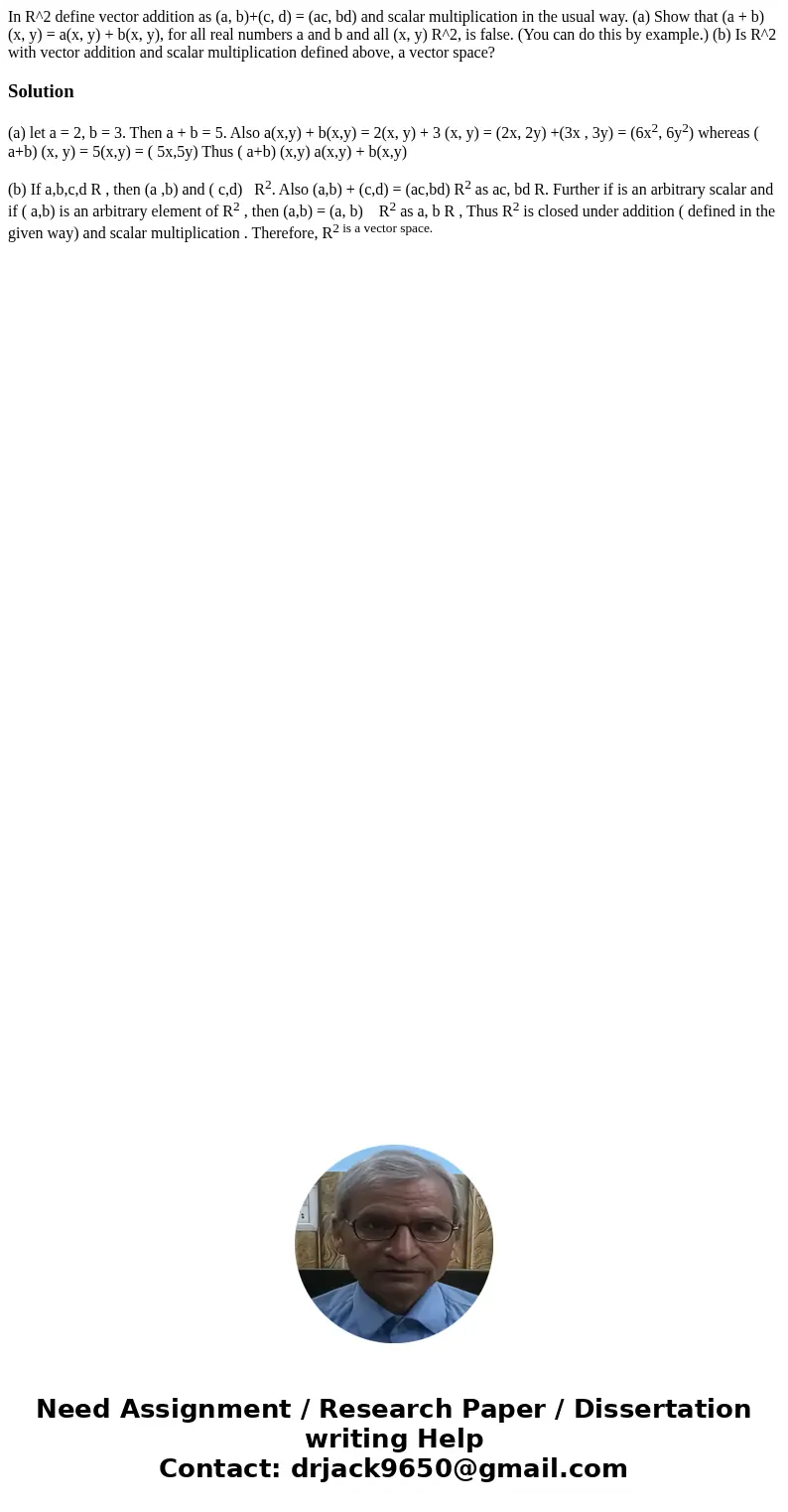In R2 define vector addition as a bc d ac bd and scalar mul
In R^2 define vector addition as (a, b)+(c, d) = (ac, bd) and scalar multiplication in the usual way. (a) Show that (a + b)(x, y) = a(x, y) + b(x, y), for all real numbers a and b and all (x, y) R^2, is false. (You can do this by example.) (b) Is R^2 with vector addition and scalar multiplication defined above, a vector space?
Solution
(a) let a = 2, b = 3. Then a + b = 5. Also a(x,y) + b(x,y) = 2(x, y) + 3 (x, y) = (2x, 2y) +(3x , 3y) = (6x2, 6y2) whereas ( a+b) (x, y) = 5(x,y) = ( 5x,5y) Thus ( a+b) (x,y) a(x,y) + b(x,y)
(b) If a,b,c,d R , then (a ,b) and ( c,d) R2. Also (a,b) + (c,d) = (ac,bd) R2 as ac, bd R. Further if is an arbitrary scalar and if ( a,b) is an arbitrary element of R2 , then (a,b) = (a, b) R2 as a, b R , Thus R2 is closed under addition ( defined in the given way) and scalar multiplication . Therefore, R2 is a vector space.

 Homework Sourse
Homework Sourse